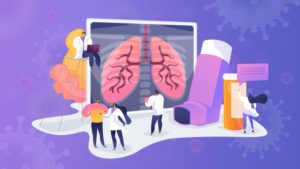To live life in the best of health, we must address mental health concerns.
According to a definition specified in the Constitution of the World Health Organization (WHO), “Health is a state of complete physical, mental, and social wellbeing, and not merely the absence of disease or infirmity.”
What this means is that mental health is as vital to our overall wellbeing as other aspects of health (physical, emotional, social, spiritual, etc.). Moreover, that it is an outdated notion that mental health concerns are ignorable.
For far too long, the stigma of being associated with mental illness has prevented people from seeking help. Rooted in misguided notions, this stigma prevents us from helping ourselves and others.
Addressing this misinformation is an essential step in bringing mental health concerns into the light and for everyone to gain from its benefits.
Three Common Misconceptions Regarding Mental Health Issues
Here is the truth about mental health:
1.We Are Not Alone in Facing Mental Health Issues
Mental health problems are more common and widespread than we can imagine. More than 450 million people worldwide are currently experiencing conditions such as Generalized Anxiety Disorder, Depression, Bipolar Disorder, Schizophrenia, etc.
Furthermore, mental health disorders even affect young children with issues beginning as early as 14 years old. Unfortunately, most children do not receive the support they require before these disorders affect their developmental needs.
2. Mental Illness Does Not Mean You Are Weak
Accepting that you have a mental health condition does not make you weak or incapable. On the other hand, treating the illness can help you achieve much more than before.
Mental illnesses are just like physiological illnesses – they need professional medical care.
These issues are caused by various factors including, genetics, injury, brain chemistry, trauma, abuse, etc. In most cases, these factors are biological. And in other cases, they have more to do with external influences than our actions.
According to a U.S. study, more than 50% of people with severe mental illness were employed and more than 60% of those with mild or moderate mental illness.
Accepting that we have mental health issues will not stop us from living our lives.
3. Mental Illness Is Not Always Permanent
With professional treatment and care, a patient will likely recover from a mental health condition.
It will not be a lifelong battle that requires constant attention. Sometimes, these issues (like bipolar disorder) can occur in periodic episodes in between which patients resume their normal life. In these cases, prompt treatment can help reduce the impact of these episodes.
Additionally, the treatment for mental illnesses is not always medication in the form of pills, sometimes it is therapy. Both of these forms of treatment help patients transition into a better life.
Now that we have cleared some of the doubts regarding mental health issues, let’s look at why we should not ignore them.
Why We Should Not Ignore Mental Health
Since mental illness is not always apparent, it can be easy to miss or ignore indications that we are unwell.
One of the most widespread mental illnesses is depression, and its symptoms (including lethargy, persistent sadness, loss of interest, changes in temperament, and more) are not always blatant. Moreover, they worsen if we choose to suffer in silence. This is the case for any mental illness, just like with any physiological illness.
If we keep ignoring our mental health, we may also ignore our overall health leading to higher rates of stress, a great risk of heart disease and obesity, lower inhibition to substance abuse, and the possibility of self-harm and death.
It is also important to note that external circumstances, like hardships because of a pandemic, trauma caused due to an accident or disaster, and being a part of a marginalized community, increase the risk of experiencing mental health issues.
So, we must make mental healthcare a reality for everyone, and not just those privileged enough to afford it.
Is Mental Healthcare Available for Everyone?
Today, mental healthcare services are more accessible than they ever were before. With online and telemedicine service portals like Docty, it has become easier for patients to access professional help regardless of circumstances.
There are also free resources online for those who cannot afford to pay for help. All you need to do is take the first step, which is to seek professional help.
October 10th is World Mental Health Day, and the theme for this year is “Mental Healthcare in an Unequal World”. This theme is in acknowledgment of the fact that valuable resources and support should be easily available to everyone.
So, if we want to make mental healthcare a reality for all, we can start by lifting the stigma that surrounds it. If we break our silence on it and disregard the worry of how others will perceive us, we will be able to help ourselves, our family members, and others in our society.




